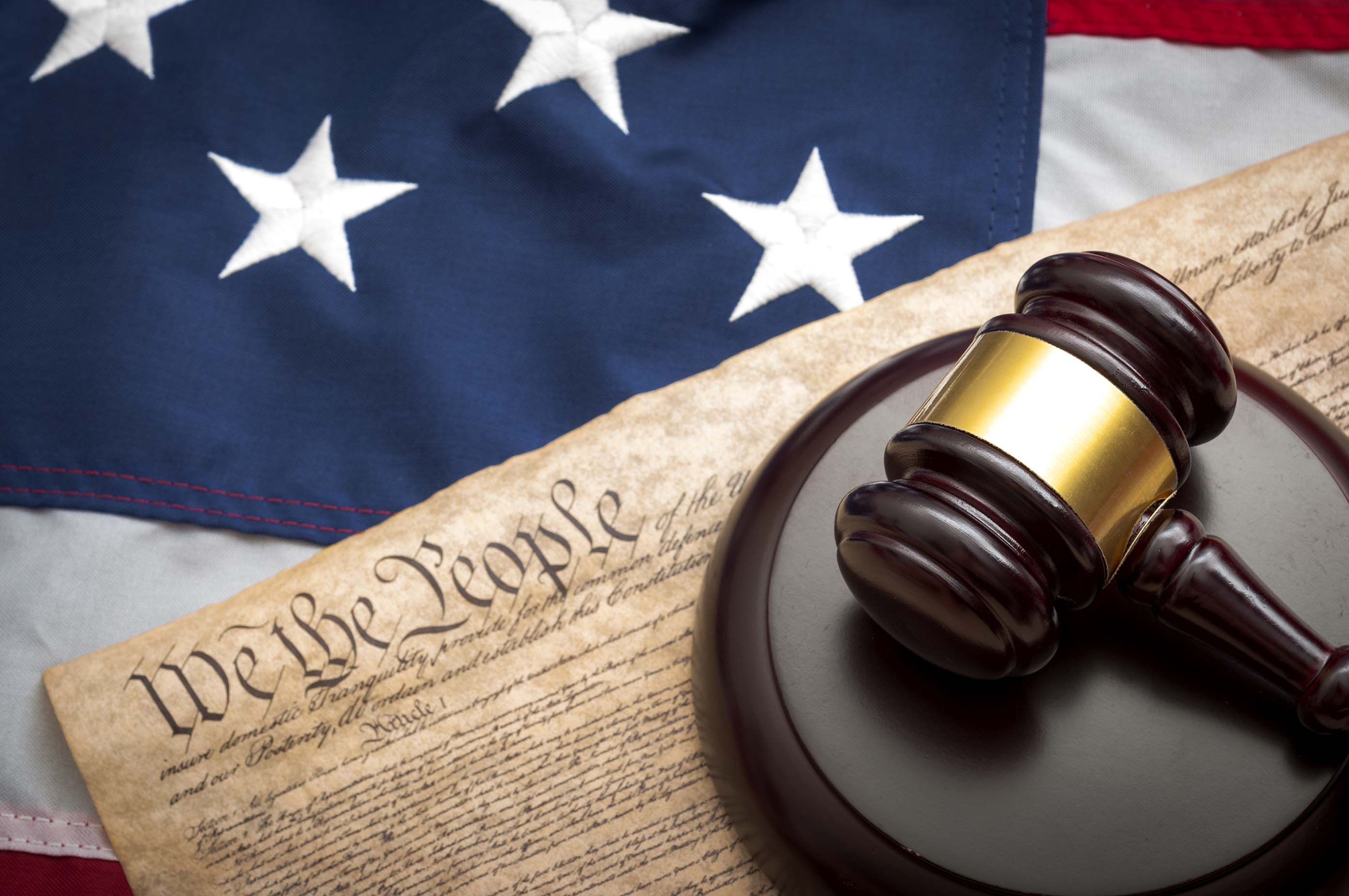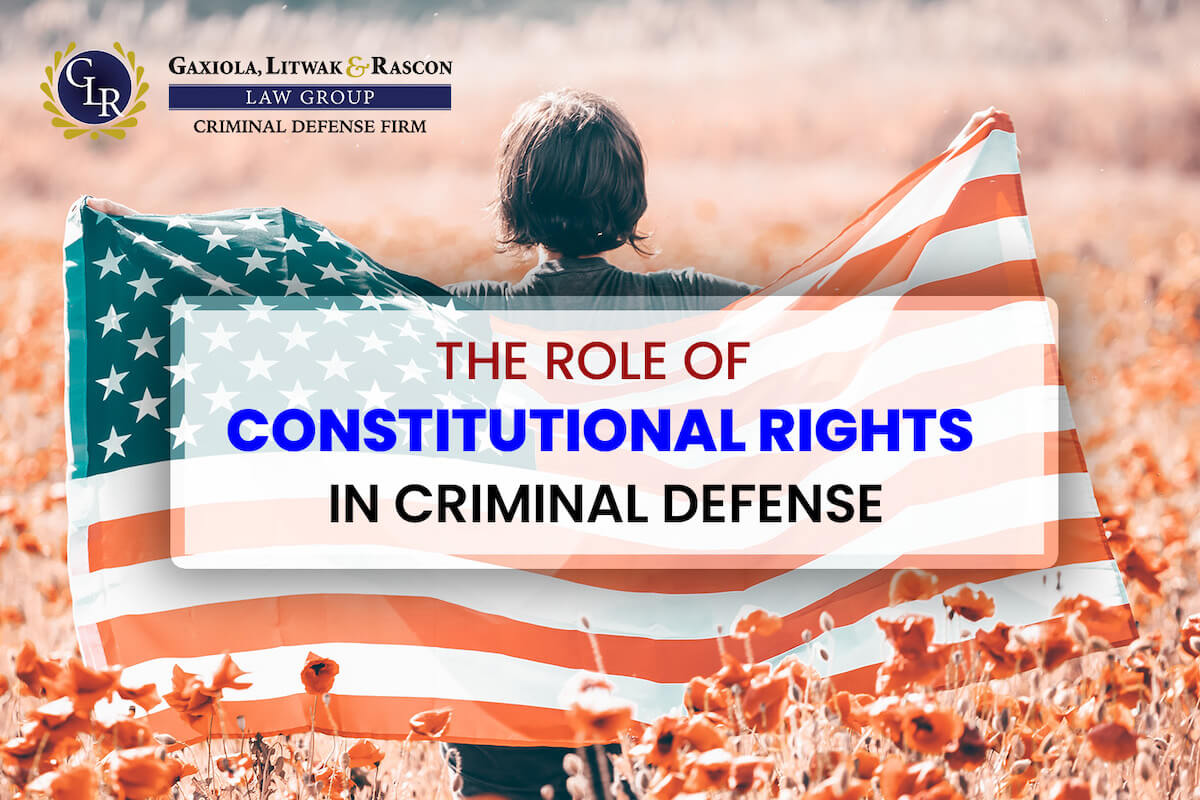Constitutional rights in criminal cases are fundamental safeguards that ensure fairness and justice within the legal system. These rights, enshrined in the U.S. Constitution, protect individuals from arbitrary government actions and ensure that criminal proceedings are conducted with due process and respect for individual liberties. This exploration delves into the key constitutional provisions that safeguard the rights of those accused of crimes, providing a comprehensive overview of their significance and application in the legal process.
From the right to counsel and the privilege against self-incrimination to the protection against unreasonable searches and seizures, these rights form the cornerstone of a fair and impartial justice system. Understanding these constitutional provisions is crucial for both legal professionals and citizens alike, as they shape the very fabric of our legal system and protect the rights of every individual.
The Right to Protection from Unreasonable Searches and Seizures
The Fourth Amendment to the United States Constitution protects individuals from unreasonable searches and seizures by the government. This protection is essential for safeguarding individual privacy and liberty. The amendment states: “The right of the people to be secure in their persons, houses, papers, and effects, against unreasonable searches and seizures, shall not be violated, and no Warrants shall issue, but upon probable cause, supported by Oath or affirmation, and particularly describing the place to be searched, and the persons or things to be seized.”
Also Read
The Role of Warrants in Legal Searches
To conduct a lawful search, law enforcement officers generally need a warrant issued by a judge. A warrant is a legal document that authorizes a search of a specific place or person. The warrant must be supported by probable cause, which means that there must be a reasonable belief that evidence of a crime will be found in the place to be searched.
The warrant must also describe with particularity the place to be searched and the things to be seized. This requirement ensures that the search is narrowly tailored to the crime being investigated and that the officers do not have free rein to search wherever they please. The warrant requirement serves to protect individuals from arbitrary government intrusion and to ensure that searches are conducted in a reasonable and lawful manner.
Exceptions to the Warrant Requirement
There are several exceptions to the warrant requirement, meaning that law enforcement officers can conduct searches without a warrant in certain circumstances. These exceptions are narrowly construed and are only applicable in specific situations.
- Consent: If a person voluntarily consents to a search, officers can conduct a search without a warrant. However, consent must be freely and voluntarily given.
- Plain View: If officers are lawfully present in a place and observe evidence of a crime in plain view, they can seize the evidence without a warrant.
- Exigent Circumstances: In emergency situations, such as when there is a risk of danger to life or property, officers may conduct a search without a warrant.
- Search Incident to Arrest: Officers can search a person and the area within the person’s immediate control when they make a lawful arrest.
- Automobile Exception: Because automobiles are mobile and can quickly be moved out of reach, officers may search a vehicle without a warrant if they have probable cause to believe that the vehicle contains evidence of a crime.
- Stop and Frisk: If officers have a reasonable suspicion that a person is involved in criminal activity, they can briefly detain the person and pat them down for weapons.
The Right to Freedom from Cruel and Unusual Punishment: Constitutional Rights In Criminal Cases

The Eighth Amendment to the United States Constitution prohibits the federal government from imposing cruel and unusual punishments. This right, which is also applicable to the states through the Fourteenth Amendment, aims to protect individuals from inhumane treatment and excessive penalties.
The Evolving Definition of Cruel and Unusual Punishment
The concept of cruel and unusual punishment has evolved over time, influenced by societal values and changing understandings of human rights. The Supreme Court has interpreted the Eighth Amendment to consider both the nature of the punishment and the circumstances surrounding its application.
The Court has considered a range of factors in determining whether a punishment is cruel and unusual, including:
- The severity of the punishment in relation to the crime committed
- The intent of the punishment
- The method of execution
- The possibility of reform or rehabilitation
For instance, the death penalty has been a subject of ongoing debate under the Eighth Amendment. The Court has upheld the death penalty’s constitutionality, but it has also ruled that certain applications of the death penalty, such as for crimes that do not involve the taking of a life, violate the Eighth Amendment.
Implications of the Eighth Amendment for Sentencing Practices
The Eighth Amendment has significant implications for sentencing practices. Courts must consider the proportionality of sentences and ensure that punishments are not excessive or disproportionate to the offense. This principle has led to the development of guidelines for sentencing, and the Court has struck down certain mandatory minimum sentences as unconstitutional.
The Eighth Amendment also prohibits the use of certain forms of punishment, such as torture and cruel and unusual methods of execution. The Court has held that certain methods of execution, such as the electric chair or firing squad, violate the Eighth Amendment.
The Eighth Amendment has also been applied to prison conditions. The Court has recognized that prisoners retain certain rights, including the right to be free from cruel and unusual punishment. This has led to rulings that prohibit the use of excessive force by prison guards, the denial of adequate medical care, and the imposition of unsanitary or dangerous prison conditions.
The Right to Privacy

The Fourth Amendment to the U.S. Constitution guarantees the right to be free from unreasonable searches and seizures. This right is essential to protecting individual privacy, as it prevents the government from intruding into people’s lives without justification. The Supreme Court has recognized that the Fourth Amendment protects a broad range of privacy interests, extending beyond the physical home to include personal papers, effects, and even electronic communications.
The Fourth Amendment’s protections are not absolute. The government can conduct searches and seizures if it has probable cause to believe that a crime has been committed or that evidence of a crime will be found. This probable cause must be supported by specific and articulable facts, not mere suspicion. Additionally, the government can conduct searches and seizures without a warrant if there are exigent circumstances, such as when there is a risk of imminent danger or the destruction of evidence.
Electronic Surveillance, Constitutional rights in criminal cases
The Fourth Amendment’s protection of privacy extends to electronic communications, including phone calls, emails, and internet activity. However, the rapid evolution of technology has presented challenges in applying the Fourth Amendment’s protections to these new forms of communication.
The Supreme Court has ruled that the government can conduct electronic surveillance if it has a warrant, based on probable cause. However, the Court has also recognized that the government’s ability to access vast amounts of electronic data raises concerns about privacy. In response to these concerns, Congress has passed laws that restrict the government’s ability to conduct electronic surveillance without a warrant, such as the Electronic Communications Privacy Act (ECPA).
DNA Testing
The Fourth Amendment also applies to DNA testing. The Supreme Court has ruled that the government can conduct DNA testing on individuals who have been arrested for certain crimes, even if they have not been convicted. This ruling was based on the government’s interest in identifying suspects and preventing future crimes. However, the Court has also recognized that DNA testing raises concerns about privacy, as it can reveal sensitive information about an individual’s genetic makeup.
The use of DNA testing in criminal investigations has become increasingly common in recent years. This has led to debates about the balance between law enforcement needs and privacy rights. Some argue that DNA testing is an effective tool for solving crimes and protecting public safety. Others argue that it is an invasion of privacy and that it can be used to discriminate against individuals based on their genetic makeup.
The Constitution serves as a powerful shield for those accused of crimes, ensuring that their rights are respected throughout the legal process. By understanding these fundamental rights, individuals can better navigate the criminal justice system and advocate for their own protection. This exploration has shed light on the key constitutional provisions that safeguard the rights of the accused, highlighting their importance in maintaining a just and equitable society.
Constitutional rights in criminal cases ensure fairness and due process, protecting individuals from arbitrary government action. These rights extend beyond criminal proceedings, however, as they also influence the way in which consumers are protected from unfair business practices. For example, the right to free speech allows consumers to voice their concerns about products or services, while the right to due process applies to consumer protection regulations, such as those outlined on Anderson Beakley Law’s website.
Ultimately, these constitutional safeguards help to ensure that both criminal defendants and consumers are treated fairly and have access to legal remedies when their rights are violated.



